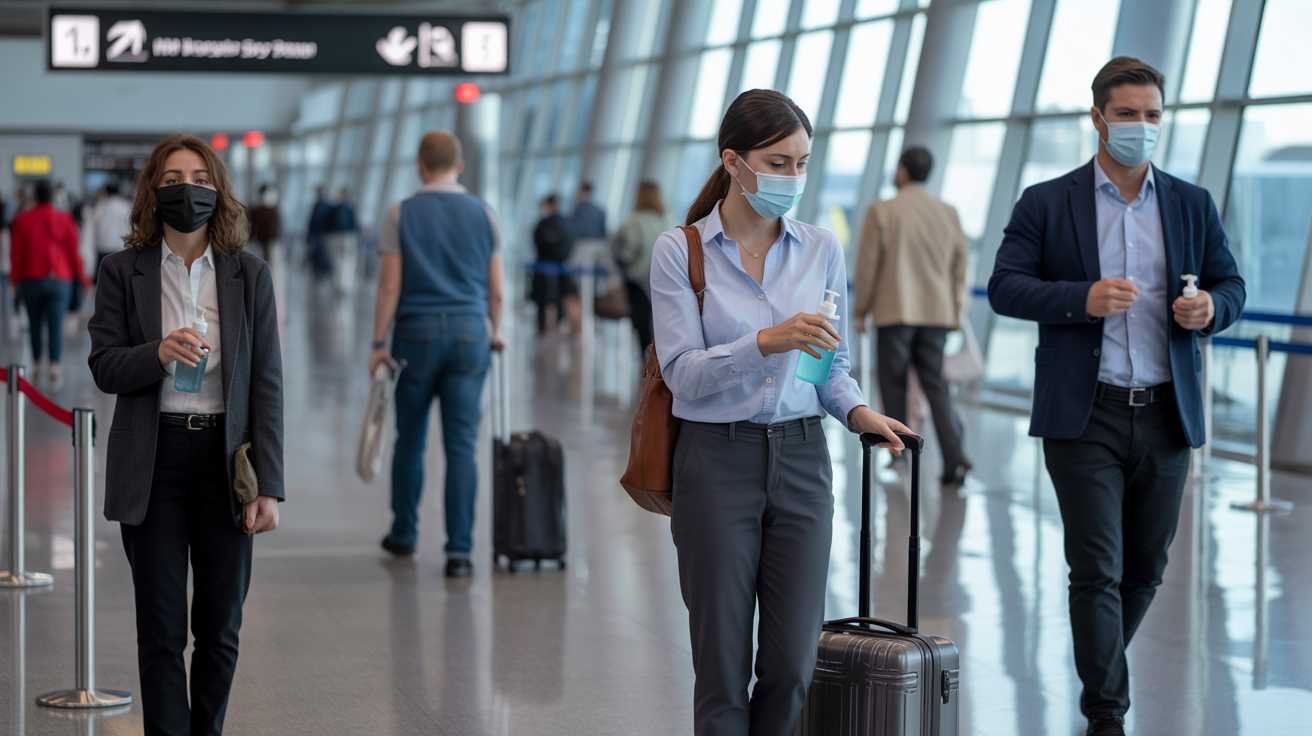In a world where travel and public events are more accessible than ever, the risk of exposure to infectious diseases looms large. Whether you’re embarking on a long-awaited vacation, attending a bustling festival, or participating in a crowded conference, the potential for encountering illness is ever-present. The urgency to protect yourself and your loved ones has never been greater. This comprehensive guide delves into the most effective strategies for minimizing infection risks during travel and public gatherings, ensuring your experiences remain safe and memorable.
Understanding the Risks: Why Vigilance is Crucial
Every journey and event carries inherent health risks. Airports, train stations, and crowded venues are breeding grounds for viruses and bacteria. The close proximity to others, shared surfaces, and confined spaces facilitate the rapid spread of infectious agents. For instance, respiratory illnesses can transmit through airborne droplets, while gastrointestinal infections often spread via contaminated food or water. Recognizing these risks is the first step in safeguarding your health. The World Health Organization emphasizes the importance of awareness and preparedness in managing health risks during travel and mass gatherings. Their guidelines provide a framework for understanding and mitigating potential threats.
Pre-Travel Preparations: Fortifying Your Defenses
Preparation is paramount. Before embarking on your journey, ensure that your vaccinations are up-to-date. The Centers for Disease Control and Prevention (CDC) advises travelers to receive all recommended vaccines, including routine and travel-specific ones, to protect against diseases prevalent in certain regions. Additionally, consider consulting with a healthcare provider about prophylactic medications, especially if traveling to areas with endemic diseases like malaria. Beyond medical preparations, pack essential hygiene supplies such as hand sanitizers with at least 60% alcohol, disinfectant wipes, and a well-fitting mask. These items are your first line of defense against potential infections.
During Travel: Navigating with Caution
While en route, exercise heightened caution. In airports and on airplanes, maintain physical distance from others when possible. Use disinfectant wipes to clean high-touch surfaces like armrests, tray tables, and seatbelt buckles. Regular handwashing is crucial; wash your hands thoroughly with soap and water for at least 20 seconds, especially before eating or touching your face. If soap and water aren’t available, use an alcohol-based hand sanitizer. Wearing a mask, particularly in crowded or enclosed spaces, can significantly reduce the transmission of respiratory viruses. The Mayo Clinic underscores the importance of these practices in minimizing the risk of contracting illnesses during travel.
Accommodation Safety: Creating a Secure Haven
Your place of stay should be a sanctuary, not a source of exposure. Upon arrival, inspect your accommodations for cleanliness. Wipe down commonly touched surfaces such as doorknobs, light switches, and remote controls. If possible, choose accommodations that have received health and hygiene certifications, such as the Safe Travels stamp from the World Travel & Tourism Council. This certification indicates that the establishment adheres to global health and hygiene protocols, providing an added layer of assurance. Remember, your health is invaluable; don’t compromise on the quality of your accommodations.
Food and Water: Eating and Drinking with Caution
Consuming food and water from unverified sources can lead to gastrointestinal illnesses. To mitigate this risk, opt for bottled water and avoid ice unless you’re certain it’s made from purified water. When dining, choose establishments that maintain high standards of cleanliness and food safety. If you’re unsure about the safety of street food or local delicacies, it’s better to err on the side of caution. The Maryland Department of Health advises travelers to avoid consuming raw or undercooked meats and seafood, as well as unpasteurized dairy products, to prevent foodborne illnesses.
Social Distancing and Mask Usage: Essential Practices
Maintaining physical distance from others is a simple yet effective way to reduce the spread of infections. The CDC recommends keeping at least 6 feet of distance from individuals who are not from your household, especially in crowded settings. Wearing a mask adds an additional layer of protection, particularly in areas where social distancing is challenging. Masks help prevent the transmission of respiratory droplets, which are a primary mode of spread for many infectious diseases. Adhering to these practices can significantly decrease your risk of exposure during public events and gatherings.
Monitoring Your Health: Staying Alert
Throughout your travels and participation in public events, remain vigilant about your health. Monitor for any symptoms such as fever, cough, fatigue, or gastrointestinal distress. If you experience any of these symptoms, seek medical attention promptly. Early detection and treatment are crucial in preventing the escalation of illness. Additionally, be aware of any travel advisories or health notices issued by health authorities. The CDC provides up-to-date information on health risks associated with specific destinations, allowing you to make informed decisions about your travel plans.
Post-Travel: Safeguarding Your Return
Upon returning home, continue to practice good hygiene and monitor your health for any signs of illness. If you develop symptoms after travel, inform your healthcare provider about your recent activities and potential exposures. This information can assist in accurate diagnosis and treatment. Additionally, consider self-isolating if you suspect you may have been exposed to an infectious disease, especially if you were in a high-risk area or attended a large public event. Taking these precautions helps protect not only your health but also the well-being of those around you.
Embracing Education: Empowering Yourself with Knowledge
One of the most effective ways to reduce the risk of infection is through education. Understanding the modes of transmission, symptoms, and preventive measures empowers you to make informed decisions. Institutions like YEP Education offer resources and training on health and safety practices, equipping individuals with the knowledge to protect themselves and others. By investing in education, you take proactive steps in safeguarding your health during travel and public events.
In conclusion, while the risks associated with travel and public gatherings are real, they are manageable with proper precautions. By staying informed, preparing adequately, and adhering to recommended health practices, you can enjoy your experiences with confidence and peace of mind. Remember, your health is your greatest asset; prioritize it, and your journeys will be all the more rewarding.


